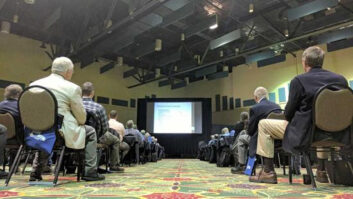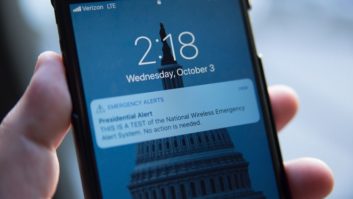A federal court has said the FCC was within its authority to seek more input before deciding whether to require broadcasters to simulcast emergency alert information in languages other than English.
The Multicultural Media, Telecom & Internet Council and the League of United Latin American Citizens and League of Latin American Citizens had challenged that FCC decision, both on statutory grounds and as arbitrary and capricious.
A three-judge panel of the U.S. Court of Appeals for the D.C. Circuit (with one partial dissent) rejected the appeal, concluding that the FCC’s decision not to mandate bilingual simulcasts and instead gather more information was consistent with statute, “reasonable and reasonably explained.”
“Alert originators can (and sometimes do) compose and transmit alerts in languages in addition to English. And broadcasters in those circumstances then automatically broadcast the alerts in those other languages as well,” wrote Judge Brett Kavanaugh in the opinion. “But as petitioners concede, the FCC lacks authority over alert originators and therefore cannot compel alert originators to transmit alerts in languages in addition to English.”
“By contrast, the FCC does have authority over broadcasters who participate in the emergency alert system. But as of now, the FCC does not require broadcasters to translate emergency alerts into other languages and then broadcast the alerts in those other languages as well as in English. The FCC is studying (admittedly on what one might call ‘bureaucracy standard time’) whether to require broadcasters to do so. But before deciding that question, the FCC for now has sought more comprehensive information on whether and how broadcasters can translate emergency alerts and broadcast them in languages in addition to English.”
While Kavanaugh said the FCC needed to “fish or cut bait,” he also said that petitioners want the court to “force broadcasters to play a major new role in the emergency alert system even though Congress and the FCC have not yet required broadcasters to do so. But the Judiciary does not make those kinds of policy choices in our system of separation of powers.”
Not surprisingly, supporters of the appeal did not agree.
“In the context of hurricanes and wild fires, this opinion rather reluctantly allows the FCC to continue to ignore the needs of listeners who are not fluent in English,” said Andrew Schwartzman, who was on an amicus brief in favor of the challenge. “As the dissent points out, Democratic and Republican controlled FCC majorities alike have failed to address this problem adequately over many years.”
Judge Patricia Millet, in her partial dissent, said that while the FCC was within its authority, its decision-making was not reasonable. “[U]nreasonable is retaining ownership of the problem for decades while, in reality, just continuing to tread water,” she wrote, adding “This is the regulatory equivalent of fiddling while Rome burns.”












